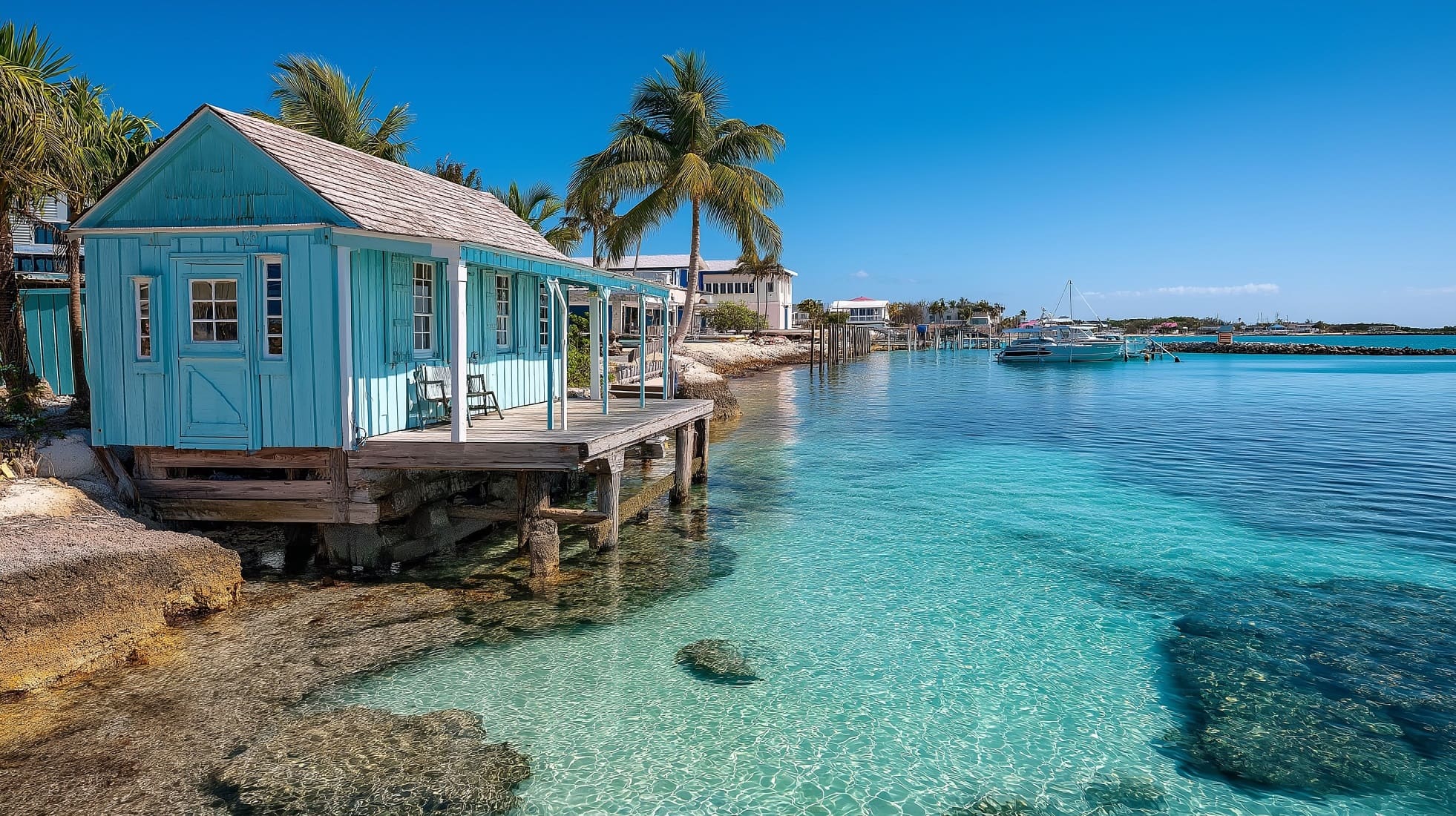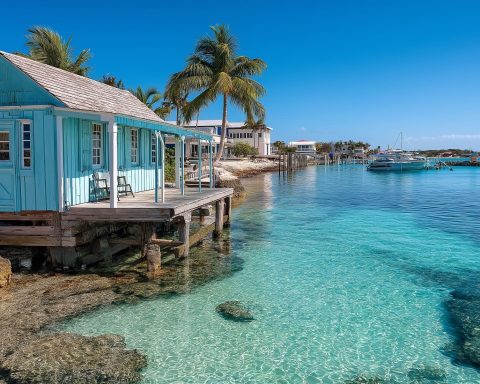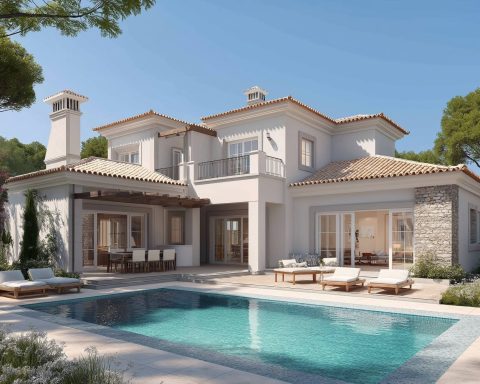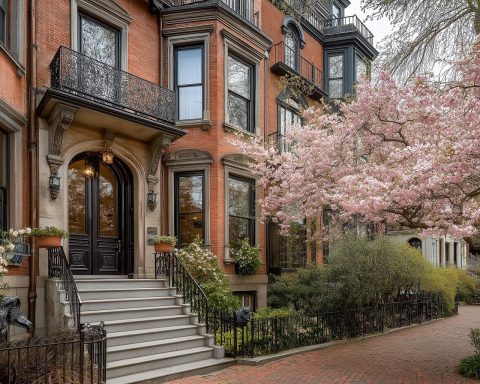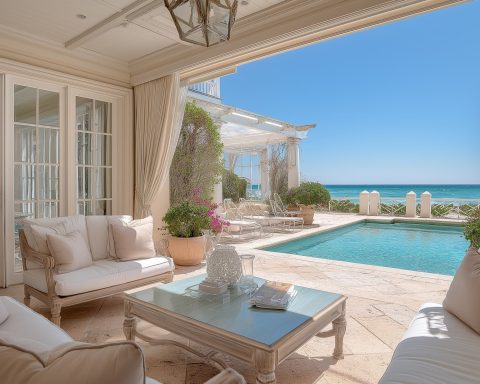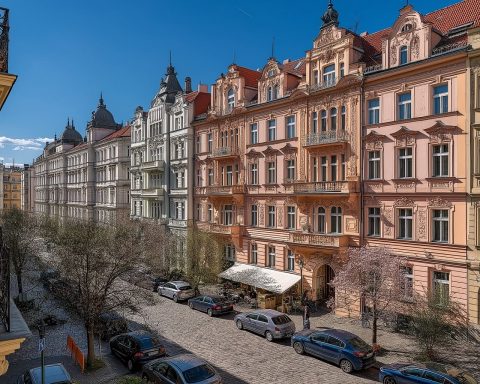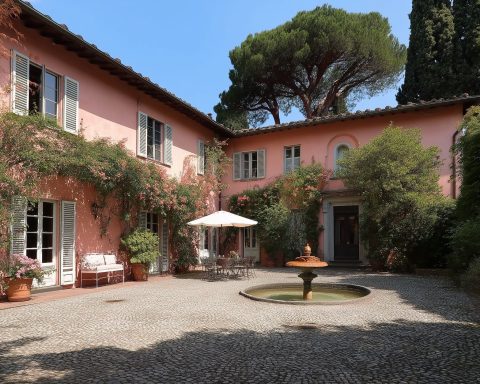Overview of Current Market Conditions (2025)
The Bahamas real estate market in 2025 is dynamic and robust, underpinned by a strong post-pandemic economic recovery and record-breaking tourism. The nation welcomed an unprecedented 11.22 million international visitors in 2024, up 16.2% from 2023 and the highest ever – surpassing even pre-COVID numbers travelmarketreport.com. This tourism boom has fueled demand for vacation properties and rentals across the islands. Economic growth is steady (GDP grew from $14.34 billion in 2023 to $14.83 billion in 2024, with projections of $17.62 billion by 2029 dupuchrealestate.com), and the government remains stable and business-friendly. These factors together contribute to high investor confidence in Bahamian real estate dupuchrealestate.com dupuchrealestate.com.
After a frenzy of buying during 2020–2023, market activity moderated in 2024 to more sustainable levels practiceguides.chambers.com. The wild pandemic-era surge – when wealthy remote workers and investors snapped up island properties – has given way to a calmer but still positive market reminiscent of the pre-2019 environment practiceguides.chambers.com. Inventory remains tight, especially in high-end neighborhoods, so sellers of quality properties can retain ambitious asking prices and still attract interest practiceguides.chambers.com. However, higher price points are seeing some buyer pushback. In top-tier enclaves, values roughly doubled since 2020 (e.g. homes that were $3 million in 2019 often sold for $6 million by 2023), and some sellers’ attempts to push to $8 million are now meeting resistance, causing longer listing times content.knightfrank.com content.knightfrank.com. Overall, 2025 begins with a market in equilibrium – demand is strong (especially from foreign buyers) but price growth has stabilized compared to the extreme spikes of previous years. A growing supply of new developments and easing pandemic-era distortions have returned the market to a more balanced pace, even as 2024 ended with record real estate sales volumes in some segments homesforsaleinnassaubahamas.com.
Residential Real Estate Segment
Residential property in The Bahamas spans from local first-time buyer homes to ultra-luxury waterfront villas. This segment is characterized by a two-tiered market. On one side is the high-end sector, driven by foreign demand, and on the other is the local mid-market, where affordability is a concern globalpropertyguide.com globalpropertyguide.com. The luxury vacation-home and expat segment has been booming: The Bahamas ranked 3rd globally in prime residential price growth in 2023, with a 15% year-on-year increase in luxury property values globalpropertyguide.com. Even into early 2025, sales of prime properties over $3 million were up 18% year-on-year, and prime waterfront homes typically appreciate around 6–8% annually, outpacing many traditional investments homesforsaleinnassaubahamas.com. This sustained appreciation reflects strong international interest, limited supply of prime locations, and the islands’ cachet as a tax-neutral safe haven. American buyers dominate foreign purchases (about 35% of international buyers), followed by Europeans (~30%) and Canadians (10%), all drawn by the climate and investment benefits globalpropertyguide.com. This influx of global wealth has spurred new construction in upscale gated communities and condo-resorts. Developers are catering to modern preferences by building more turn-key condominiums with resort amenities, since many buyers now seek a “lock-and-leave” island home rather than maintaining a standalone estate content.knightfrank.com. The result is a wave of new luxury condo projects in areas like Nassau’s Cable Beach and Paradise Island, adding inventory to the high-end market.
In contrast, the mainstream residential market for local Bahamians faces challenges. Years of rising prices have stretched affordability for middle-class families globalpropertyguide.com. Supply of affordable housing has lagged far behind demand, leading to rising rents and prices in local neighborhoods. Many Bahamian buyers rely on financing, yet bank mortgage lending has been relatively stagnant (outstanding residential mortgages actually shrank by ~1.4% annually over the past decade) globalpropertyguide.com. Local first-time buyers are finding limited options, and the government has intervened with initiatives like the Renaissance at Carmichael project to build ~200 affordable homes globalpropertyguide.com. Still, such efforts are modest next to the scale of need. As a result, home ownership rates are low and a large portion of the population remains in the rental market – as of the last census about 35% of dwellings were occupied by paying tenants globalpropertyguide.com. The good news is that 2025 may see some relief on the supply side: officials report several initiatives to create more moderately priced housing and improve mortgage access for Bahamians dupuchrealestate.com. Overall, the residential sector in 2025 is marked by robust activity at the top end and ongoing affordability pressures at the entry level. Bridging this gap is a key challenge for the market’s long-term sustainability.
Luxury Property Segment
The luxury real estate segment in The Bahamas is a world unto itself – one of ultra-premium homes, private islands, and resort-branded residences that attract high-net-worth individuals from across the globe. This segment has been exceptionally strong. During 2020–2023, wealthy buyers flocked to The Bahamas as an ideal pandemic escape, driving up prices dramatically. As noted, values in elite communities (e.g. Lyford Cay, Albany, Ocean Club Estates) roughly doubled from 2019 to 2023, an extraordinary run-up content.knightfrank.com. Even as the market cools slightly in 2025, the exclusive end of the market remains a seller’s market in many respects – inventory is scant and coveted listings can fetch a premium. Sellers of quality luxury properties often succeed even at high list prices, as long as they aren’t unrealistically above recent comps practiceguides.chambers.com. However, buyers have become more discerning now, and some overpriced mega-estates are lingering unsold longer than before content.knightfrank.com.
A notable trend is the shift in buyer preferences towards turnkey convenience and amenities. Many affluent buyers, including younger executives able to work remotely, prefer luxury condominiums or managed resort residences over standalone mansions content.knightfrank.com. They value the “hotel lifestyle” – concierge services, security, spas and restaurants on site – and not having to worry about maintenance or hurricane preparations for a large property content.knightfrank.com. In response, developers have launched several branded residence projects. For example, at Nassau’s Cable Beach, the new GoldWynn and Aqualina condos offer five-star amenities, while at Paradise Island the Ocean Club Four Seasons Residences (scheduled for 2027 completion) will deliver ultra-exclusive apartments and villas in a famed resort setting practiceguides.chambers.com globalpropertyguide.com. The Baha Mar resort complex added the Rosewood Residences on Cable Beach, giving condo owners access to all the perks of the adjacent five-star hotel content.knightfrank.com. Upcoming projects by luxury brands like Six Senses, Montage, and even Bvlgari are in development on various islands travelmarketreport.com, further elevating the Bahamas’ profile in the global luxury market.
Foreign billionaires are also drawn to unique opportunities such as private islands and bespoke estates. The Exumas, for instance, offer private island parcels and remote high-end villas that serve as ultimate status symbols homesforsaleinnassaubahamas.com. Such trophy properties can command stratospheric prices (many tens of millions of dollars for an island or an expansive estate), and interest remains steady from UHNW buyers seeking safe, secluded retreats. Industry analysts note that The Bahamas is now firmly established as a top-tier luxury real estate destination; in Knight Frank’s 2024 Wealth Report, The Bahamas was one of the best-performing luxury housing markets worldwide globalpropertyguide.com. Going forward, the luxury segment is expected to remain buoyant. While price growth may moderate after the huge gains of recent years, global demand for Bahamian luxury property is still rising, and new high-end inventory is quickly absorbed. In short, The Bahamas’ combination of tropical lifestyle and financial/tax benefits continues to “captivate discerning investors” in the luxury space homesforsaleinnassaubahamas.com.
Commercial Real Estate and Tourism Developments
Outside of private residences, The Bahamas’ commercial real estate sector is largely driven by tourism, hospitality, and mixed-use resort development. Traditional commercial segments (office, retail, industrial) are relatively small given the country’s size, but the hospitality and resort sector is booming. The record tourism numbers of 2024 have encouraged significant investment in hotels, marinas, and attractions, which in turn influences the real estate market. Notably, Nassau’s cruise port was redeveloped and fully re-opened in May 2023, now able to berth the largest new cruise ships practiceguides.chambers.com. This has revitalized Nassau’s downtown and foreshadows increased tourist foot traffic for nearby businesses. The cruise industry remains a cornerstone of the economy – cruises generated over $650 million in direct spending in the latest year travelmarketreport.com – and expansion is continuing. For example, Royal Caribbean and Carnival are each developing new cruise port destinations in The Bahamas practiceguides.chambers.com. Royal Caribbean is creating a beach club on Paradise Island, and Carnival is building a major cruise port in Grand Bahama. These projects will drive supporting commercial real estate (from retail shops to excursion facilities) and boost visitor numbers to those islands once operational.
Perhaps the most exciting developments are in the resort and hotel pipeline. Over the past two years, The Bahamas attracted over $10 billion in foreign direct investment, much of it into luxury resort projects travelmarketreport.com. This includes a mix of new resorts, expansions of existing ones, and high-end residential communities. For instance, ground has broken on Jack’s Bay, an exclusive golf resort community in Eleuthera, and on Montage Cay in Abaco, a private-island resort with branded residences practiceguides.chambers.com. In Grand Bahama, the high-end Six Senses Resort & Residences is underway, signaling confidence in Freeport’s revival practiceguides.chambers.com. On Paradise Island, a new Four Seasons hotel and residences are planned as part of the Ocean Club redevelopment practiceguides.chambers.com, complementing the iconic Atlantis resort. Nassau/New Providence continues to see investment as well – besides Baha Mar’s additional phases, the ultra-luxe Albany community (backed by celebrities) is launching new phases of construction practiceguides.chambers.com. Boutique and mid-sized resorts on the “Out Islands” (the Family Islands) are also proliferating practiceguides.chambers.com. Developers are targeting affluent travelers seeking unique, unspoiled locations, with projects on smaller cays that offer seclusion and bespoke experiences practiceguides.chambers.com.
These tourism-driven developments have a direct impact on real estate: they create jobs, improve infrastructure, and often include residential components (condos, villas) for sale. For example, a new resort often comes with a set of for-sale villas or condo units that foreign buyers can purchase – blending commercial and residential real estate. Infrastructure upgrades are following as well. The government has prioritized improvements like airport expansions (e.g. a $55 million upgrade at North Eleuthera Airport, and a new international airport for Exuma slated for 2025 completion) to support the growth in visitor traffic ewnews.com ewnews.com. Roads, marinas, and utilities are being enhanced on islands seeing new resorts. Overall, commercial real estate prospects are strong, especially in tourism-related assets. High hotel occupancy rates and rising average daily rates are incentivizing investment in new hotels and vacation rentals. Even niche sectors like logistics/warehousing could see a boost as consumer demand grows with the population. The main caution is ensuring that these developments are sustainable and spread benefits beyond just the resort enclaves. But as of 2025, infrastructure and tourism investment is at an all-time high, signaling confidence that The Bahamas will continue to draw visitors and property investors in the coming years travelmarketreport.com travelmarketreport.com.
Investment Opportunities and Lifestyle Considerations
The Bahamas offers a compelling package for real estate investors and those looking to relocate. A combination of natural beauty, lifestyle appeal, and financial incentives makes 2025 an attractive time to consider buying property. Tax advantages are a major draw: The Bahamas levies no income tax, no capital gains tax, no inheritance or estate tax on individuals linkedin.com. This tax-neutral environment means that rental income or profit from reselling a property is generally earned tax-free (important for Americans, who can often offset it with foreign tax credits) dupuchrealestate.com. The cost of carrying property is reasonable as well – property tax rates are low to moderate (and owner-occupied homes are exempt on the first $300k of value) linkedin.com. For high-net-worth buyers, purchasing Bahamas real estate can also be a path to residency. The government’s Economic Permanent Residency (EPR) program grants a fast-track permanent residence to foreign buyers who invest at least $1,000,000 in property linkedin.com. (This threshold was raised from $750k to $1M as of January 1, 2025 to ensure investors have a more significant long-term stake linkedin.com.) Permanent residents enjoy the right to live year-round in The Bahamas and various privileges, and after 10 years they may become eligible for citizenship linkedin.com. The residency benefit, combined with the absence of wealth taxes, is a strong incentive for investors seeking asset diversification and a Plan B residence. As one advisor noted, The Bahamas is “positioned as an investment haven”, offering long-term value appreciation plus essentially tax-free income in a stable, nearby country dupuchrealestate.com.
Beyond financials, the quality of life and lifestyle factors are a huge part of the equation. The Bahamas is an English-speaking, politically stable democracy with close ties to North America – it’s just a short flight from major U.S. cities (Miami is 1 hour away, New York about 3 hours). This proximity and ease of access make it feasible even for part-time residents to commute back and forth dupuchrealestate.com dupuchrealestate.com. The islands themselves offer an enviable lifestyle: year-round warm weather, beautiful beaches, boating and fishing, and high-end amenities like golf courses and spas. Expats find well-developed communities, including excellent international schools and medical facilities in Nassau, making it realistic to relocate with family. Indeed, the pandemic spurred a “remote work revolution” that The Bahamas capitalized on – the government introduced an extended stay visa for digital nomads, and many professionals discovered they could live in paradise while keeping their jobs abroad content.knightfrank.com content.knightfrank.com. Many of those who came temporarily have since remained as permanent or semi-permanent residents, bringing their families and even buying homes sight-unseen via virtual tours content.knightfrank.com content.knightfrank.com. This trend has increased demand for features like home offices and reliable internet in properties homesforsaleinnassaubahamas.com.
From an investor’s perspective, rental income opportunities are strong. The surge in tourism translates to high demand for short-term vacation rentals on platforms like Airbnb. In fact, Airbnb reported a 16.7% rise in room-nights booked in early 2024 compared to the year prior globalpropertyguide.com. Well-located rental properties (e.g. condos in Nassau’s Cable Beach or Paradise Island, or villas in popular islands like Exuma) can achieve solid occupancy and premium nightly rates during peak season. For instance, beachfront rentals in prime areas often fetch $300–$800 per night and are heavily booked in winter months, yielding attractive returns for owners globalpropertyguide.com globalpropertyguide.com. Longer-term rentals to residents or expats are also in demand, with monthly rents for a comfortable 3-bedroom around $3,000 in Nassau (and lower on less populated islands) globalpropertyguide.com globalpropertyguide.com. Combined with the absence of income tax, these rental yields can be very appealing. Investors also appreciate that the Bahamian dollar is pegged 1:1 to the US dollar, eliminating currency risk and simplifying transactions linkedin.com. The legal process for foreigners to buy real estate is straightforward (with either a simple registration or a permit, as discussed in the legal section), and property rights are well-protected under a familiar English common-law system. All these factors – ease of purchase, strong property rights, liquidity in the high-end market, and a lifestyle second to none – make The Bahamas a top choice for real estate investment in 2025. As one local expert put it, “If you’re thinking of investing, 2025 is a great time to get in”, given The Bahamas’ growth trajectory and unique advantages dupuchrealestate.com.
Market Trends and Forecast (2026–2030)
Looking ahead, the outlook for the Bahamian real estate market over the next 3–5 years is broadly positive, though with a few nuances. Tourism is expected to remain strong: industry projections see visitor numbers staying at record levels or even growing further in the near term globalpropertyguide.com. The IMF notes that both tourist arrivals and their average spending should continue to rise, which will support real GDP growth and, by extension, sustain demand for accommodations and real estate globalpropertyguide.com. New hotel openings coming online between 2025 and 2027 (Four Seasons, Six Senses, etc.) will add to room capacity and likely push stopover visitor numbers higher. This bodes well for the vacation rental and second-home market, as a healthy tourism sector often converts a fraction of visitors into property buyers. The government’s success in attracting large-scale investments (over $10B in resort projects recently travelmarketreport.com) also implies confidence in the market’s future. Many of those developments include residential components that will hit the market in coming years, gradually increasing supply of luxury units. As this new inventory is absorbed, we may see price appreciation in the luxury segment normalize to more moderate levels (e.g. low-to-mid single digit annual growth rather than the double-digit surge of 2021–2023). Knight Frank’s global forecasts anticipate prime property price growth easing to a few percent per year in many luxury destinations, and The Bahamas is likely to follow that pattern as it moves past the post-pandemic spike. In essence, the market should remain on an upward trajectory but at a steadier, more sustainable pace.
One clear trend is the rising interest in the Family Islands (the less populated islands outside New Providence). As Nassau and Paradise Island become pricier and more built-out, both buyers and developers are increasingly looking to islands like Exuma, Eleuthera, Abaco, Andros, and Long Island. These islands are expected to be hotspots of growth in the coming years dupuchrealestate.com. For example, Exuma and Eleuthera are already in high demand in 2025, with competition for property driving prices up dupuchrealestate.com. Abaco, after rebuilding from 2019’s Hurricane Dorian, is on an upward swing – 2024 saw air arrivals to Abaco jump nearly 12%, indicating a solid return of activity to pre-hurricane levels travelmarketreport.com. Abaco’s real estate prices, which had dropped after Dorian, are rising steadily now as infrastructure is restored and new resorts (like Montage Cay) generate buzz homesforsaleinnassaubahamas.com. Long Island and Andros are cited as “markets to watch” – they remain relatively affordable today but have substantial room for growth, so early investors there could see significant appreciation dupuchrealestate.com. We anticipate higher relative growth in values on these emerging islands than in the more mature Nassau market over the next 5 years, as improved infrastructure (airports, marinas, utilities) and new projects make the Family Islands more accessible and desirable.
Economically, The Bahamas is forecast to grow modestly. The IMF warns that long-term GDP growth beyond ~1.5% annually will require continued investment and tackling labor constraints globalpropertyguide.com. That means the pace of real estate expansion could hinge on the country’s ability to train workers and support these new projects. Nonetheless, construction and real estate services remain upbeat, with the Bahamian Contractors Association stating “the future looks promising” due to robust project pipelines globalpropertyguide.com. Key macro risks include external factors: a slowdown in the U.S. economy or global financial shocks could temper foreign buying and tourism globalpropertyguide.com. Additionally, interest rate movements internationally may affect demand – the recent era of low interest rates helped fuel luxury purchases; if rates stay high, some marginal buyers might hesitate or look for bargains. However, the ultra-wealthy segment is less interest-rate-sensitive, and many Bahamas buyers pay cash, so the impact should be limited.
On balance, the 3–5 year forecast for Bahamian real estate is for continued growth and active investment, albeit at a moderated pace. Property values are expected to generally increase in line with healthy demand, especially in waterfront and resort locales. The luxury segment will likely remain the star performer (supported by global wealth trends and The Bahamas’ enduring appeal), but we also foresee improvements in the middle market if government housing initiatives take hold. By 2030, The Bahamas will have a more diversified real estate landscape – with Nassau/Paradise Island still the commercial and transactional hub, but a larger share of activity spread among the Family Islands. Sustainability and resilience will also become more prominent (e.g. more solar-powered homes, storm-resilient construction) as new developments align with global trends. Barring any major shocks, investors can be optimistic that Bahamian real estate will maintain its reputation as a solid long-term investment and a piece of paradise to own.
Regional Spotlight: Nassau, Paradise Island, Exuma and Abaco
To understand the market better, it’s worth examining some key regions and islands individually. The Bahamas is an archipelago with varied real estate markets – from the capital city to quiet outer cays. Below is a breakdown of current performance and outlook in four important areas:
Nassau (New Providence Island)
Nassau – located on New Providence – is the nation’s capital and the largest urban market. It offers a broad spectrum of properties, from luxury gated communities and beachfront condos to starter homes for local families. Nassau’s market in 2025 is very active but showing signs of normalization after the frenzied recent years. The median home price in Nassau (and immediate outskirts) was around $495,000 as of mid-2025, which was actually a 4.9% increase year-to-date despite some monthly volatility morleyrealty.com. The average sale price (which can be skewed by a few high-end sales) was about $590,000 in mid-2025 morleyrealty.com, although other sources cite the average listing price closer to $720,000 for Nassau, reflecting the influence of upscale areas homesforsaleinnassaubahamas.com. This indicates that while many homes sell in the mid-six figures, Nassau also sees multi-million-dollar transactions that pull the average upward. Inventory has been constrained – the number of listings in early 2025 was nearly 20% lower than the year prior morleyrealty.com – but new listings are now slowly increasing as the market calms. Nassau properties, especially in desirable neighborhoods, still receive strong buyer interest. In June 2025, for example, contract signings were up 119% year-on-year even though final sales were down (suggesting some deals taking longer to close) morleyrealty.com morleyrealty.com. Rental demand in Nassau remains high thanks to the city’s job opportunities and amenities; areas like Cable Beach (home to the Baha Mar resort, restaurants, and condos) are known as “rental kings” with year-round tenant demand homesforsaleinnassaubahamas.com. Going forward, Nassau’s outlook is steady. As the commercial center, it benefits from almost all economic drivers – tourism, finance, government – and will continue to see development. Upcoming condo projects and possibly a revival of downtown residential living (with the cruise port revitalization) could add fresh inventory. Price growth is expected to be modest but positive, and Nassau will remain the liquidity hub of Bahamian real estate (the easiest place to buy or sell quickly). Key sub-markets to watch include western New Providence (Albany, Lyford Cay, Old Fort Bay) where the ultra-luxury estates are, and eastern New Providence (areas like Eastern Road) which are popular with upper-middle-class residents and expats for their waterfront views and proximity to the city.
Paradise Island
Paradise Island is a small island adjacent to Nassau, known globally for the Atlantis Resort and its ultra-exclusive real estate. Paradise Island (often called just “PI”) is essentially a luxury enclave; nearly all properties here are high-end condos or luxury homes. The island’s real estate market is synonymous with luxury – it features offerings like the Ocean Club Estates (a gated community with a golf course and marina where homes range from several million up to $20+ million) and condo developments such as One Ocean and The Reef/Residential Towers at Atlantis. In 2025, Paradise Island continues to enjoy strong demand from affluent buyers who want proximity to Nassau’s conveniences but a more private, resort-like ambiance. PI’s average condo prices are among the highest in the country, often starting around $700–800k for a two-bedroom and easily exceeding $1–2 million for larger units or those with ocean views. Oceanfront penthouses and mansion estates can reach eight figures. Inventory on Paradise Island is limited (it’s a small land area), so new construction is mainly vertical (condos) or redevelopment of older sites. A major development on the horizon is the Four Seasons/Ocean Club Residences project, slated for completion by 2027, which will add a select number of super-luxury apartments and villas within the Ocean Club grounds globalpropertyguide.com. This is highly anticipated and many units have waitlist interest from existing Four Seasons clientele. Market performance on PI has been robust – properties here tend to hold value well and trade infrequently. In late 2024 into 2025 there were reports of days-on-market for prime Paradise Island listings dropping sharply (desirable units often selling within ~2–3 months) as wealthy buyers snapped up any available inventory homesforsaleinnassaubahamas.com. Looking ahead, Paradise Island’s real estate is poised to remain very strong. The prestige of the location, continued upgrades to the Atlantis resort, and new luxury offerings (like a rumored Aman resort, and the confirmed Royal Caribbean Beach Club attraction) will keep demand high. We anticipate continued price appreciation, potentially outpacing the Nassau average, especially for unique properties (e.g. oceanfront estates, top-floor penthouses). Paradise Island will also benefit from Nassau’s growth while being insulated from many of Nassau’s issues (such as traffic or congestion). In summary, PI is and will continue to be one of the Caribbean’s most exclusive addresses, appealing to buyers seeking turnkey luxury, security, and entertainment at their doorstep.
Exuma
Exuma refers to a chain of idyllic islands (the largest being Great Exuma) about 140 miles south of Nassau, famed for turquoise waters and unspoiled beauty. The Exumas have become one of the Bahamas’ hottest up-and-coming real estate markets. Life in Exuma is laid-back and scenic – from the main settlement of George Town to tiny cay communities – and it attracts those looking for a tranquil retreat away from the crowds dupuchrealestate.com. The real estate in Exuma ranges from quaint island-style cottages to lavish waterfront estates and even private islands for sale. Market conditions in 2025 show high demand and limited supply. Exuma is cited as being “in high demand” by brokers, with competition for quality listings driving prices up dupuchrealestate.com. Average home prices are harder to generalize here due to the diverse property types, but waterfront homes and villas typically list well above $1 million (often $2–5 million for modern luxury builds). Exuma’s appeal to the ultra-wealthy is evident: it’s one of the top spots for private island purchases, and celebrities have bought hideaways in the Exuma Cays. For example, David Copperfield’s private island Musha Cay and Johnny Depp’s Little Hall’s Pond Cay put Exuma on the map for elite retreats. For non-billionaires, Exuma still offers some relatively affordable lots and homes inland or off-water, but even those have climbed as more investors catch on to Exuma’s potential. The rental market is strong – Exuma’s swimming pigs, world-class snorkeling, and fishing draw many tourists, and Airbnb data shows Exuma with one of the highest average daily rental rates in the country (around $750/night on average, among active short-term rentals) globalpropertyguide.com globalpropertyguide.com. With a new international airport terminal under construction and luxury resort projects like the Grand Isle Resort expansion and Sandals upgrades, the island’s accessibility and amenities are improving. Outlook: Exuma is expected to continue rising in prominence. Industry experts consistently name Exuma as a top investment choice for 2025 and beyond dupuchrealestate.com. As one report noted, Exuma offers “pure escape” and is poised for further development that still respects its natural charm homesforsaleinnassaubahamas.com. Buyers in the next few years may see solid appreciation, especially if they purchase now before more developments complete. The key will be maintaining the balance between development and the environment – something local stakeholders are mindful of. Overall, Exuma’s real estate future looks bright, with its combination of rarity, beauty, and new infrastructure likely to yield strong returns.
Abaco
Abaco (The Abaco Islands) lies in the north of The Bahamas and includes Great Abaco, Little Abaco, and a string of cays famous for sailing and second homes. Abaco’s market is unique because it is rebounding from a severe setback: Hurricane Dorian in September 2019 devastated parts of Abaco, including Marsh Harbour and Treasure Cay, causing widespread property damage. In the years since, reconstruction has been steady, and by 2024–2025 Abaco is experiencing a renaissance of interest and investment dupuchrealestate.com. The current market in Abaco is characterized by increasing demand and rising prices, as both returning residents and opportunistic investors have been buying up properties (some storm-damaged homes sold at discounts post-Dorian, and those have been renovated or rebuilt). According to the Ministry of Tourism, Abaco had an 11.9% increase in air arrivals in 2024, the strongest growth of any major island, signaling a solid return to pre-Dorian levels of activity travelmarketreport.com. Areas like Treasure Cay, known for its stunning beach, and Elbow Cay (with the quaint Hope Town lighthouse) are once again buzzing with life. Real estate prices in Abaco, which plummeted in 2019–2020, have been climbing back. Treasure Cay beachfront lots and condos, for example, have regained value as the community rebuilds; some properties are now reaching or exceeding their pre-hurricane price points, though still offering good relative value in 2025. Abaco also hosts luxury developments: Baker’s Bay Golf & Ocean Club, a private resort community on Great Guana Cay, is fully back in operation and continues to attract very wealthy buyers (homes there range from $4 million upward). Looking ahead, Abaco’s prospects are very positive. There is significant pent-up demand from those who love Abaco’s boating, fishing, and relaxed lifestyle. Montage Cay, a high-end resort on a private island in Abaco, is under development and will add a five-star hotel and branded residences by 2025/26 practiceguides.chambers.com. This is expected to further boost Abaco’s profile. The government has also prioritized infrastructure repairs – roads, electrical grids, etc. – to support growth. Local agents report that Abaco is “increasingly in demand” and that prices are “increasing steadily” as the recovery progresses homesforsaleinnassaubahamas.com homesforsaleinnassaubahamas.com. Risks remain (another major storm, for instance), but there is a strong community spirit and investor interest propelling Abaco forward. For 2025 and the next few years, Abaco represents both a story of resilience and an opportunity – buyers who invested post-Dorian have already seen gains, and continued growth is likely as Abaco fully bounces back.
Legal and Tax Considerations for Buyers
Investors and foreign homebuyers in The Bahamas should be aware of the legal framework and taxes associated with real estate. The Bahamas generally welcomes foreign ownership of property, and the process is well-defined:
- Foreign Ownership Rules: International buyers can own freehold property in The Bahamas with relatively few restrictions. If a foreign purchaser is buying a single-family residential property or vacant land intended for a personal residence, no special permit is required; the buyer simply registers the acquisition with the Investments Board after closing (and pays a one-time $1,000 registration fee) practiceguides.chambers.com practiceguides.chambers.com. This results in a Certificate of Registration being issued. However, if a foreigner is purchasing land for commercial development, rental investments, or multiple units (anything beyond a one-off personal home), then an “International Persons Landholding Permit” must be obtained prior to closing practiceguides.chambers.com. The permit is also obtained via the Investments Board/Bahamas Investment Authority. Failing to get a required permit would render the deed null and void, so this is an important step for investor-buyers practiceguides.chambers.com. In practice, permits are routinely granted for legitimate projects/investments – the government primarily uses it to vet and record significant foreign investments. There are no citizenship requirements or leasehold-only rules; foreigners may own freehold title (fee simple) to property just like Bahamians, once registered or permitted as above.
- Transaction Taxes (Stamp Duty/VAT): All real estate transactions incur a one-time tax on the conveyance, which since 2019 is levied as a Value Added Tax (VAT) on property sales. Foreign buyers pay a flat 10% VAT on all property purchases over $100,000 linkedin.com. This is typically split between buyer and seller by agreement (commonly each pays 50%, though negotiations like 70/30 are not uncommon on large deals) linkedin.com. For purchases under $100,000, the VAT is 2.5%. Bahamian citizens enjoy a graduated stamp duty/VAT schedule: for them the tax is 2.5% on the first $100k, 4% on $100k–$300k, 6% on $300k–$500k, 8% on $500k–$700k, 9% on $700k–$1M, and 10% above $1M linkedin.com. (Bahamian first-time homebuyers get even further reductions/exemptions up to $500k to encourage home ownership linkedin.com linkedin.com.) The net effect is that foreign buyers will generally pay 10% on most home purchases, whereas locals often pay a bit less. It’s worth noting this transaction VAT replaces the former “stamp duty” – it’s effectively the same thing just administratively handled under VAT law now.
- Annual Property Tax: The Bahamas imposes an annual property tax (also called real property tax) on real estate, with very favorable rates for owner-occupied homes. Owner-occupied residential properties pay 0% on the first $300,000 of value (completely tax-exempt for that portion) linkedin.com, 0.625% on value from $300k to $500k, and 1.0% on value above $500,000 linkedin.com. There is a cap – no owner-occupied home pays more than $120,000 per year in property tax, no matter how valuable. This exemption threshold was recently raised (it was $250k, now $300k) to alleviate tax burden on moderate homes linkedin.com. For non-owner-occupied properties (investments or second homes that are not primary residences), the rates are slightly higher: 0.75% on the first $500k, 1.0% on $500k–$2M, and 1.5% above $2M linkedin.com. (Vacant land has a separate flat rate of 2% if owned by foreigners, to discourage land banking, but if a home is built the regular rates apply.) Notably, The Bahamas has no additional municipal property taxes – this national property tax is the only recurring tax on real estate. Many exclusive developments (like Albany or Lyford Cay) instead levy homeowner association fees for community services, but no city property taxes.
- Income Tax and Capital Gains: The Bahamas does not tax income, capital gains, or inheritance. This means rental income earned from a Bahamian property, or profit from selling the property, is not taxed by The Bahamas government linkedin.com. There are also no estate or inheritance taxes on Bahamian real estate – it can be passed to heirs without any local death duties linkedin.com. These tax policies are a huge advantage for investors from high-tax countries. (Foreign owners should consult their home country tax laws, though – e.g. U.S. citizens still owe U.S. tax on worldwide income, but they can often offset the Bahamian tax which in this case is zero, making the income effectively tax-free up to foreign earned income exclusion limits or via credits.)
- Residency by Investment: As mentioned, investing in Bahamas real estate can make one eligible for Economic Permanent Residency. The current threshold is a minimum $1,000,000 investment in real estate to qualify linkedin.com. The property (or properties, totaling that amount) must be maintained, as selling below the threshold could jeopardize the status. The residency conferment is not automatic but is routinely granted for qualifying investments, and applications are said to take around 3–4 months for approval homesforsaleinnassaubahamas.com. There is also an accelerated consideration if you invest $1.5M+ (the process will be expedited) linkedin.com. Permanent residents have most of the rights of citizens except voting, and as noted, one can apply for citizenship after 10 years of residency. It’s also worth noting that simply being a resident does not impose any tax since The Bahamas has no income tax – one can live there free of personal taxation, which is a core part of the appeal linkedin.com.
Overall, The Bahamas’ legal regime is very favorable to real estate investors. Title is secured by recorded deeds (the government is in the process of modernizing to a registration system to further improve efficiency) practiceguides.chambers.com. Foreign exchange controls exist but are accommodating for investment purposes (the Bahamian dollar is on par with USD and funds can be repatriated with Central Bank approval, especially if initially brought in for purchase). The key takeaways are that foreigners can buy with confidence, should budget around 10% for closing tax costs, and can enjoy a low ongoing tax burden. These factors, combined with a stable legal system, make The Bahamas stand out as an investor-friendly jurisdiction.
Risks, Challenges, and Sustainability
While the overall outlook is positive, investors should keep in mind several risks and challenges that could impact the Bahamian real estate market in the coming years. Here are some key considerations:
- Hurricane and Climate Risks: The Bahamas is geographically vulnerable to hurricanes and the effects of climate change. The devastation of Hurricane Dorian in 2019 – which leveled parts of Abaco and Grand Bahama – was a stark reminder of this risk. A direct hit from a major hurricane can cause massive property damage and temporarily depress local real estate markets (as seen in Abaco’s post-2019 downturn). Insurance costs for property have risen accordingly and will be an important factor in ownership cost. Sea level rise and erosion are long-term concerns, especially for low-lying beachfront areas. Building codes have been strengthened for wind resistance, and savvy buyers now prioritize homes built to withstand Category 5 storms or situated on higher ground. Nonetheless, climate events remain an ever-present wildcard for the market. Investors should ensure proper insurance and resilient construction for any property. The good news is that recovery and reconstruction tend to follow even severe storms – for instance, Abaco’s real estate activity is now rebounding strongly just a few years after Dorian travelmarketreport.com – but the short-term impact of such events can be significant.
- Economic and External Factors: The Bahamian economy is heavily dependent on external conditions – particularly the health of the U.S. economy and global travel trends. A slowdown in the U.S. or Canada (key tourism and buyer markets) could reduce visitor flows and curtail some demand for second homes globalpropertyguide.com. Likewise, global crises (recessions, pandemics) can quickly dampen the Bahamas’ tourism-driven economy, as seen in 2020. Rising interest rates internationally may also cool foreign buying, especially for those who finance purchases or rely on borrowing against assets. The IMF points out that sustaining growth beyond the current pace will require continued investment and addressing labor shortages globalpropertyguide.com – if those don’t materialize, economic growth could underperform. Additionally, while The Bahamas has a stable currency and fiscal situation, it does carry national debt that could force fiscal adjustments in the future (potentially including changes to tax policy, though there’s no indication of any income tax on the horizon). Mitigation: The government is actively courting diversified investments (tech, logistics, etc.) to broaden the economic base beyond tourism. And the large scale of FDI commitments (over $10B in two years travelmarketreport.com) provides some buffer in terms of job creation and economic stimulus. Still, investors should keep an eye on global economic indicators since The Bahamas’ fortunes are closely tied to them.
- Housing Affordability and Social Inequality: The flip side of a booming luxury market is that local middle-class Bahamians are increasingly priced out of housing. There is a growing affordability gap as wages have not kept pace with home prices. This has social implications (crowding, increased demand for rentals, emigration of talent) that the government is keenly aware of. If not addressed, it could lead to political pressure for measures that might indirectly affect investors – for example, stricter rules on foreign buyers in certain price segments, or more taxes on speculative purchases, etc. Currently, foreign investment is viewed very positively (it’s crucial to the economy), but it’s important to be sensitive to local needs. The government’s push to build affordable homes and offer concessions to first-time buyers is aimed at easing this issue globalpropertyguide.com globalpropertyguide.com. For the market, a broad base of local buyers is healthy for long-term stability. If too much of the market is only accessible to foreigners, it could create imbalances. Thus, progress on affordable housing will actually benefit the overall real estate sector by expanding homeownership. Sustainability of demand is also linked to this – a society where locals prosper will create its own internal property demand, adding resilience beyond the whims of foreign buyers.
- Environmental Sustainability: The very environment that makes The Bahamas attractive – coral reefs, clear waters, pristine beaches – is under pressure from development. There is increasing focus on sustainable development practices to ensure the natural beauty is preserved. Investors and developers are starting to incorporate more eco-friendly designs (solar panels, rainwater harvesting, LEED-certified building techniques) in luxury projects, as today’s high-end buyers often expect a level of environmental responsibility homesforsaleinnassaubahamas.com. The government has also announced aggressive plans to expand renewable energy (particularly solar) by 2033, aiming to reduce dependence on fossil fuels and improve self-sufficiency on the islands dupuchrealestate.com homesforsaleinnassaubahamas.com. This could significantly impact real estate in remote areas – for instance, private islands and off-grid homes will benefit from better solar technology and storage, making them more viable. However, environmental challenges like water supply, waste management, and habitat conservation will need continual attention as development spreads to less developed islands. Sustainability concerns also extend to cultural and historical preservation, ensuring that new development doesn’t erode the local heritage that is part of The Bahamas’ charm. The government and community stakeholders are increasingly aware that long-term real estate value is tied to keeping the islands environmentally healthy and resilient.
In conclusion, while there are risks to consider, none of them diminish the core appeal of Bahamas real estate but rather frame the need for prudent, informed investment. Awareness of hurricanes and insurance, understanding the economic linkages, being mindful of social impacts, and prioritizing sustainability will all be part of being a savvy investor in The Bahamas going forward. By navigating these challenges, investors can better secure their slice of paradise and help ensure the Bahamian real estate market remains vibrant and sustainable for years to come.
Sources:
- ERA Dupuch Real Estate Bahamas – 2024 Market Recap and 2025 Outlook dupuchrealestate.com dupuchrealestate.com dupuchrealestate.com dupuchrealestate.com
- Chambers & Partners – Real Estate 2025: Bahamas (Law & Practice) practiceguides.chambers.com practiceguides.chambers.com practiceguides.chambers.com
- Morley Realty – Nassau & Paradise Island Market Report (June 2025) morleyrealty.com morleyrealty.com
- Glenn Ferguson (Realtor) – Why Invest in Bahamas Real Estate in 2025? homesforsaleinnassaubahamas.com homesforsaleinnassaubahamas.com homesforsaleinnassaubahamas.com
- Global Property Guide – Bahamas Residential Property Analysis 2024 globalpropertyguide.com globalpropertyguide.com globalpropertyguide.com
- Travel Market Report – Record 11.22 M Visitors in 2024 (Feb 2025) travelmarketreport.com travelmarketreport.com travelmarketreport.com
- LinkedIn (Glenn S. Ferguson) – Bahamas Real Estate Taxes 2025 Guide linkedin.com linkedin.com linkedin.com
- IMF Country Report – The Bahamas 2024 Article IV Consultation globalpropertyguide.com globalpropertyguide.com
- Others: Bahamas Ministry of Tourism statistics travelmarketreport.com, Knight Frank Caribbean Insight 2024 content.knightfrank.com, Forbes Global Properties report globalpropertyguide.com, etc.
